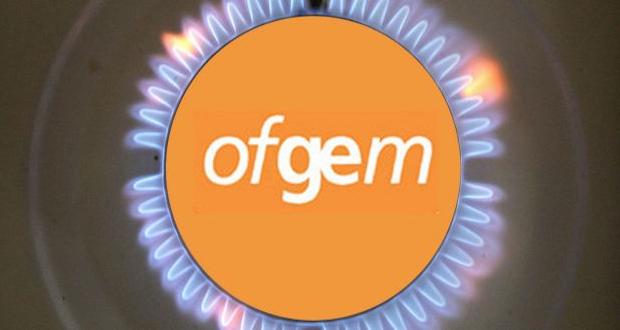
31 March 2023
MaresConnect Limited (MCL) welcomes the consultation on Ofgem’s proposed approach to project delivery delays as part of the timelines and incentives framework applied to the Third Window published on 24 February 2023 (the Consultation).
We set out below our responses to each of the consultation questions.
1. Do you agree with the proposals of the modified Regime Start Date and modified Backstop Date concepts as part of the Timelines and Incentives changes to the Third Cap and Floor Window for Interconnectors?
MaresConnect welcomes the proposal of the modified Regime Start Date and modified Backstop Date concepts as part of the Timelines and Incentives changes to the Third Cap and Floor window for interconnectors, subject to the comments set out in the remainder of this response.
Generally speaking, it is helpful for projects to maintain certainty over the length of the regime, despite delays (and subject to the Backstop Date), particularly for raising debt financing. However, any ‘penalty’ applied to developers during the Exposure Period should be proportionate to the benefit to consumers of the potential for Cap payments during the Exposure Period. We elaborate on this in our response to question 3 below.
In addition, while we welcome the concept, it is not possible for Window 3 project promoters to fully assess whether the terms of the Payback Mechanism will be beneficial in all circumstances at this stage. Accordingly, we suggest that Ofgem provides the modified Regime Start Date concept as an option that developers can select in circumstances where a delay does not qualify as a Reasonable Delay Event or Pre-Operational Force Majeure, with the existing penalty of the reduced regime length remaining as the default regime.
2. Do you believe that there are any improvements that could be made to the development of the modified Regime Start Date and modified Backstop Date concepts?
Regime start date
Generally speaking, it is helpful for projects to maintain certainty over the length of the regime, despite delays (and subject to the Backstop Date), particularly for raising debt financing.
We do not have any suggestions to improve these concepts, other than the points made in relation to the proposed Payback Mechanism set out in our response to questions 3 and 4 below.
Backstop date
The exact terms of the proposed “modified Backstop Date” are not clear to us. It would be helpful for Ofgem to clarify what is meant by the “modified Backstop Date” and whether there are circumstances where the Window 3 Backstop Date (in addition to the Regime Start Date) would be extended for a particular project in the case of a Reasonable Delay Event or Pre-Operational Force Majeure.
We also note that for Window 3 projects with a Regime Start Date closer to 2032 as approved by Ofgem at the IPA stage, if the Backstop Date remains fixed at 2032, despite a Reasonable Delay Event or Pre-Operational Force Majeure Event occurring, the ability to obtain relief by way of extension to the Regime Start Date under these mechanisms may be very limited for projects with a Regime Start Date closer to 2023.
3. Do you agree with the proposal to implement a Payback Mechanism for Delays as a proportionate incentive to encourage developers to deliver projects on time and protect consumers from the impacts of delays?
We agree that a Payback Mechanism is an appropriate way to incentivize developers to deliver projects on time and to protect consumers from the impacts of delays. However, the current proposal that all floor payments received during the Exposure Period are required to be repaid does not seem to be proportionate to the benefit to consumers of the extended regime period and potential to receive additional cap payments in the Exposure Period.
MaresConnect’s economic advisor, CEPA LLP, undertook a cost benefit analysis in respect of MaresConnect to support the application for Ofgem’s Cap & Floor Window 3. Across the three scenarios studied by CEPA (assessing slow decarbonisation, steady decarbonisation and rapid decarbonisation), MaresConnect’s annual revenues are projected to increase over time, with cap payments being made in at least the last 8 years of the regime period. In the case of slow decarbonisation, MaresConnect is forecast to be making cap payments for the entire regime period. Accordingly, a longer regime period is likely to be in the interests of consumers (in respect of MaresConnect at least), given the likelihood of cap payments being made during the Exposure Period.
In our view, the potential impact on project promoters if all floor payments received during the Exposure Period are required to be repaid, is too strong and is not proportionate to the potential benefits to consumers of receiving the full amount of any cap payments during the Exposure Period. In keeping with the principle of the Cap & Floor regime allocating risk and reward symmetrically between developers and consumers, we propose that the terms of the proposed Payback Mechanism are improved to be more equitable. We have suggested some ways the impact of the penalty could be improved in our response to question 4 below.
4. Do you believe that there are any improvements that could be made to the development of the Payback Mechanism for Delays?
We suggest that the Payment Mechanism is improved, for the reasons set out in our response to question 3 above, and we set out some suggestions below. This is not an exhaustive list and we would be happy to discuss this further with Ofgem:
- Ofgem could include a Payback Mechanism that requires a proportion of the floor payments to be repaid, as opposed to all floor payments. We would suggest 25% of the floor payments received in the first 12 months of the Exposure Period, and 50% for each subsequent annual period during the Exposure Period.
- The repayment of floor payments received during the Exposure Period could be funded from, or offset by, cap payments during the period (say 5 years) immediately preceding the Exposure Period. This would be an equitable way of sharing the risk/reward between consumers and developers.
- The requirement to repay floor payments received during the Exposure Period should be assessed on a net basis during the Exposure Period, rather than on an annual basis, particularly where the Exposure Period straddles Assessment Periods under the licence for the particular project. This would allow the requirement to repay floor payments to be assessed in relation to the entire Exposure Period, to avoid a situation where a project is required to repay floor payments in addition to making cap payments during the Exposure Period (on a net basis), which may not be justified or equitable in circumstances where the overall net impact on consumers during the Exposure Period is positive.
5. Do you agree with the proposal to implement a Reasonable Delay Event mechanism as a means of assessing and managing delays in early project development?
We agree with the proposal to implement a Reasonable Delay Event mechanism as a means of assessing and managing delays in early project development. The experience of Window 1 and 2 projects shows that there are circumstances outside of the definition of Force Majeure which are outside of project developers’ control and in respect of which it would be equitable to grant relief.
However, as set out above, in circumstances where a delay has occurred which is neither a Reasonable Delay Event nor a Force Majeure Event (for example, an event after FPA which would have qualified as a Reasonable Delay Event if it had occurred prior to FPA) we are of the view that it would be beneficial for developers to have the option either to extend the Regime Start Date with the Payback Mechanism or for the regime length to be reduced (as per the existing penalty for Window 1 and 2 projects).
6. Do you believe that there are any improvements that could be made to the development of the Reasonable Delay Event?
We do not suggest any further improvements to the development of the Reasonable Delay Event other than those set out earlier in this response.
Yours sincerely,
Simon Ludlam
CEO
Mares Connect Limited



